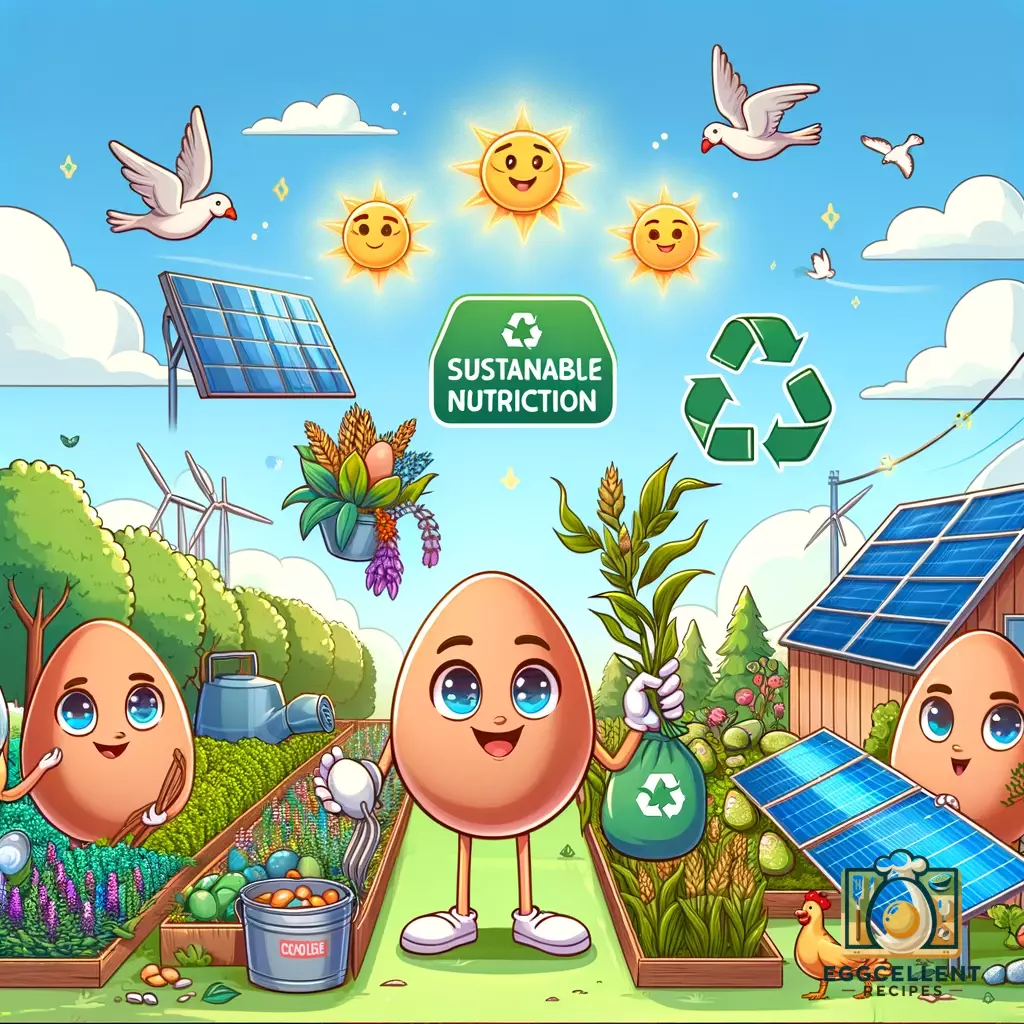 In the current global dialogue about sustainability and food security, the concept of sustainable nutrition has taken center stage. This approach emphasizes the need for dietary choices that support not only human health but also the well-being of our planet. Eggs, as a staple food item worldwide, are under scrutiny for their environmental impact. This article explores the nuances of egg production, its effects on the environment, and how it fits into the broader context of sustainable nutrition.
In the current global dialogue about sustainability and food security, the concept of sustainable nutrition has taken center stage. This approach emphasizes the need for dietary choices that support not only human health but also the well-being of our planet. Eggs, as a staple food item worldwide, are under scrutiny for their environmental impact. This article explores the nuances of egg production, its effects on the environment, and how it fits into the broader context of sustainable nutrition.
The Environmental Footprint of Egg Production
Egg production involves various processes, from feed cultivation to packaging and distribution, each contributing to its overall environmental footprint. Key factors include:
- Feed Efficiency: Chickens are relatively efficient at converting feed into eggs, making egg production more resource-efficient compared to other sources of animal protein. However, the cultivation of feed crops still requires significant water, land, and energy resources, contributing to greenhouse gas emissions.
- Water Usage: While poultry farming is generally less water-intensive than red meat production, water is still a critical resource in the lifecycle of egg production, used for drinking water for hens, cleaning facilities, and processing eggs.
- Land Use: The space required for egg production can lead to habitat loss and biodiversity decline, especially in large-scale operations. Practices such as free-range and pasture-raised systems may mitigate some impacts by promoting more natural behaviors and potentially benefiting local ecosystems.
- Greenhouse Gas Emissions: Poultry production emits lower levels of greenhouse gases per unit of protein than beef or pork, but it still contributes to carbon dioxide, methane, and nitrous oxide emissions. Efficient management practices can help reduce these emissions.
The Role of Sustainable Practices in Egg Production
To mitigate environmental impacts, many egg producers are adopting sustainable practices:
- Improving Feed Efficiency: By optimizing feed composition and reducing waste, producers can lower the environmental footprint of egg production.
- Renewable Energy: Utilizing renewable energy sources for egg production facilities can significantly reduce carbon emissions.
- Waste Management: Effective management of manure and other waste products through composting or biogas production can minimize pollution and generate renewable energy.
- Certification Programs: Certifications such as organic, free-range, and humane treatment standards not only ensure animal welfare but also often incorporate environmental sustainability criteria.
Making Sustainable Choices as Consumers
Consumers play a crucial role in promoting sustainable egg production through their choices:
- Purchase from Local and Sustainable Sources: Buying eggs from local, small-scale producers or those practicing sustainable farming can reduce the carbon footprint associated with transportation and support environmentally friendly practices.
- Look for Certifications: Certifications can guide consumers to eggs produced with higher environmental and ethical standards.
- Reduce Waste: Proper storage and utilization of eggs can minimize food waste, further contributing to sustainability.
Conclusion
The journey towards sustainable nutrition involves understanding and addressing the environmental impacts of our food choices, including egg production. By supporting sustainable practices and making informed choices, consumers can contribute to a food system that nourishes both people and the planet.






